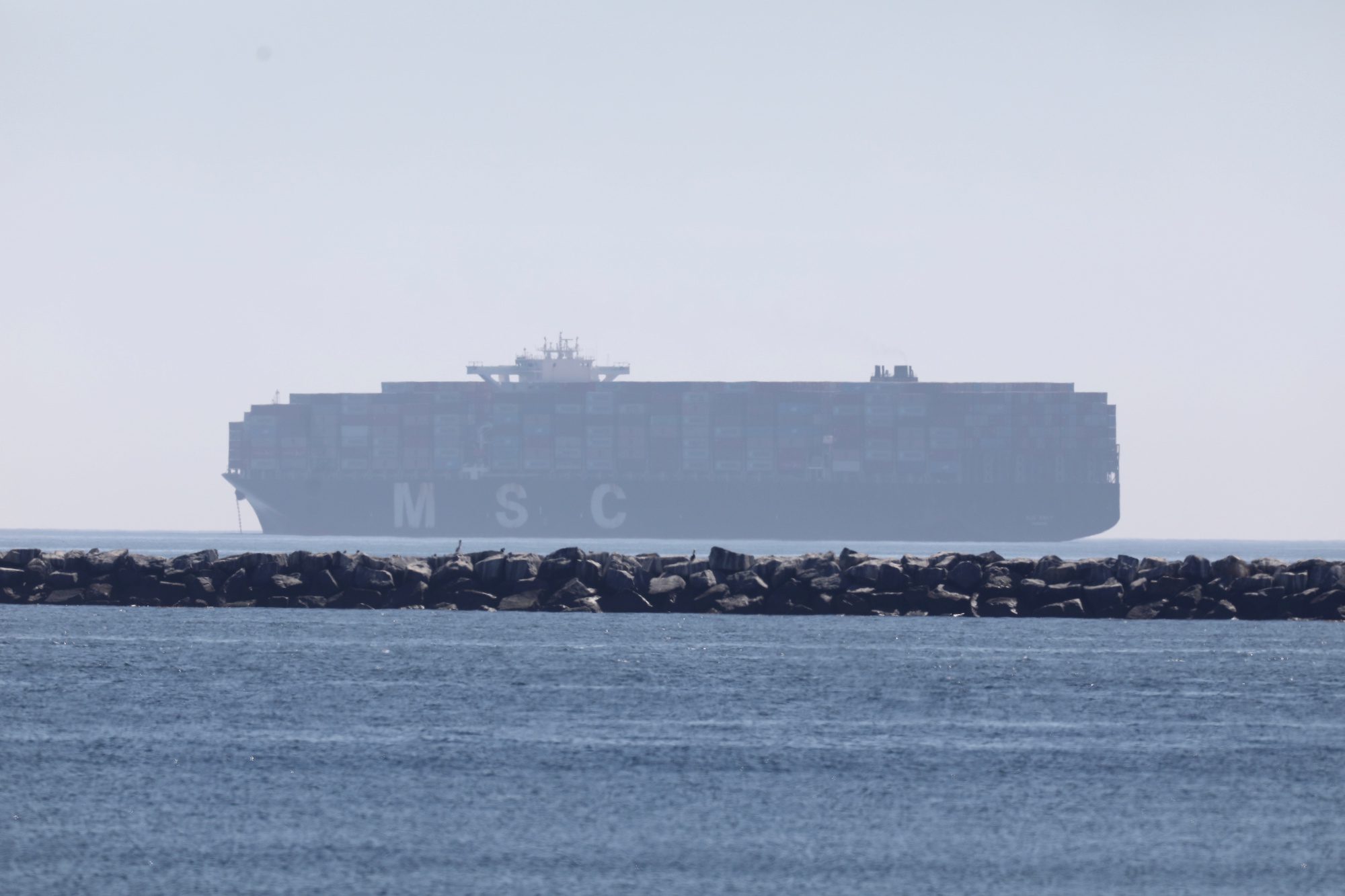Updated: August 27, 2022 (Originally published December 17, 2021)
Indictment alleges the owners and operators of the broken pipeline that leaked thousands of gallons of oil into San Pedro Bay in October continued to operate the pipeline for hours after leak alarms.
A federal grand jury has indicted three companies over the oil spill from the San Pedro Bay Pipeline that impacted large stretches Southern California beaches in early October.
The indictment filed Wednesday afternoon charges Amplify Energy and two of its subsidiary, which together own and operate the 17-mile-long San Pedro Bay Pipeline, with one misdemeanor count of negligent discharge of oil.
The grand jury accuses the defendants of illegally discharging oil by acting negligently in at least six ways, including failing to properly respond to eight separate leak alarms over the span of more than 13 hours and improperly restarting the pipeline that had been shut down following the leak alarms.
The pipeline, which was used to transfer crude oil from several offshore facilities to a processing plant in Long Beach, began leaking on the afternoon of October 1, but the defendants allegedly continued to operate the damaged pipeline, on and off, until the next morning, according to a statement from the U.S. Attorney’s Office for the Central District of California. As a result, an estimated 25,000 gallons of crude oil were discharged from a 16-inch crack in the pipeline from a point approximately 4.7 miles west of Huntington Beach.
The pipeline breach remains under investigation by the U.S. Coast Guard and NTSB, who suspect the pipeline was dragged by a ship’s anchor during a storm back on January 25, 2021. Two containerships, the MSC Danit and Beijing, have been named parties of interest in the initial anchor dragging. Why the pipeline began leaking when it did remains under investigation.
Specifically, the indictment against Amplify Energy Corp., Beta Operating Co. LLC (a wholly owned subsidiary of Amplify doing business as Beta Offshore), and San Pedro Bay Pipeline Co. (a wholly owned subsidiary of Amplify), alleges that the defendants acted negligently by:
- Failing to properly respond to eight alarms from an automated leak detection system that were activated between 4:10 p.m. on October 1 until the final alarm at 5:28 a.m. the following day;
- Shutting down and then restarting the pipeline five times after the first five alarms were triggered on October 1, resulting in oil flowing through the damaged pipeline for a cumulative period of more than three hours;
- Despite the sixth and seventh alarms, pumping oil for three additional hours late on October 1 into the early morning hours of October 2 while a manual leak test was performed;
- Despite the eighth alarm, operating the pipeline for nearly one hour in the predawn hours of October 2 after a boat they contacted failed to see discharged oil in the middle of the night;
- Operating the pipeline with crewmembers who had not been sufficiently trained on the automated leak detection system; and
- Operating the pipeline with an understaffed and fatigued crew.
The charge of negligently discharging oil carries a statutory maximum penalty of five years of probation, as well as fines that potentially could total millions of dollars.
The Coast Guard Investigative Service; the U.S. Department of Transportation, Office of Inspector General; the U.S. Environmental Protection Agency, Criminal Investigation Division; and the FBI are investigating the oil leak.
Sign up for our newsletter

 Join The Club
Join The Club









